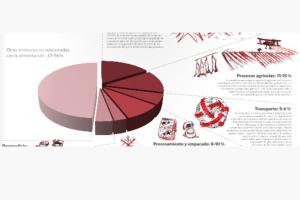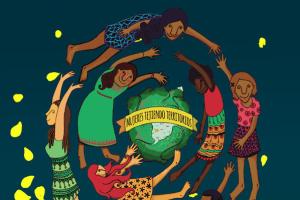There's an old joke in the US about a public prosecutor who starts to build a case against the Mafia in her city. One day she receives a mysterious visit from several large, polite, well-dressed gentlemen. They take their time to arrange themselves comfortably in chairs around her desk. After coffee is served, their leader clears his throat and begins to speak:
Africa (general)
Other information
21 December 2014
The People’s Summit on Climate Change was held December 8-11 in opposition to the false solutions being discussed at the UN climate negotiations in Lima, Peru.
Other information
21 December 2014
This report from the organization Corner House explores the question “What’s the alternative to current energy systems?” in a context of a growing climate crisis and increasing uncertainty over the future of fossil fuels. In energy policy today, the main conflict is among the different proposed alternatives themselves.
Other information
21 December 2014
The NGO network ECA Watch is mapping social movements’ alternative proposals to the large-scale infrastructure projects, including water, energy or transport infrastructure. The aim is to spread information and proposals, and to contribute to linking people and groups with each other, in order to enrich the narrative on alternative infrastructures. See map here:
http://www.eca-watch.org/node/3637
Other information
21 December 2014
A global study carried out by the Poverty and Environment Network has helped in understanding the role forests play in enhancing people’s livelihoods, confirming that forests do provide an important source of rural income, but challenging some of the long-held assumptions about how these resources are used.
Other information
21 December 2014
During the UN climate negotiations in Lima, the World March of Women expressed its active solidarity with Máxima Acuña, who is facing legal proceedings for her resistance to the transnational mining company Yanacocha in Cajamarca, northern Peru.
Other information
21 December 2014
The non-profit organization GRAIN has released an educational pamphlet that clearly demonstrates the fundamental role of the industrial food system in emissions of carbon dioxide and other toxic gases that contribute to the climate crisis. It notes, for example, that industrial agriculture accounts for between 15% and 18% of global greenhouse gas emissions through the deforestation that it causes.
Other information
21 December 2014
The Critical Information Collective is launching a new annual environmental and social justice photography competition, which will be open for entries between 1 January 2015 and 28 February 2015. Acceptances and winning entries will be notified by 31 March 2015. The 24 winning images will be printed and exhibited in Paris during the UNFCCC climate change summit in November 2015. All competition ‘acceptances’ will also be exhibited online until 31 December 2015.
Bulletin articles
21 December 2014
Bulletin articles
9 December 2014
For almost ten years, a group of banks, corporations, governments and NGOs have been attempting to show the world that REDD+ is a good mechanism for combating climate change.
Bulletin articles
9 December 2014
A problem peasant women face is invisibility in the feminist and women’s movements. A second problem is the weakness with which the food sovereignty concept has dealt with the challenges of feminism. Food sovereignty is based on the conviction that each people has the right to make decisions about its own food systems: about its own eating habits; about its production, marketing, distribution, exchange, and sharing; and about keeping food and seeds in the public sphere.
Other information
9 December 2014
A Friends of the Earth report looks at specific case studies which demonstrate that REDD projects can facilitate rather than prevent the continued use of fossil fuels; exacerbate tensions over land and resource rights; have significant negative impacts on forest-dependent Indigenous Peoples and local communities; threaten food security; and even endanger forests. Some REDD projects have also faced significant financial difficulties, wasting considerable amounts of public funding.









